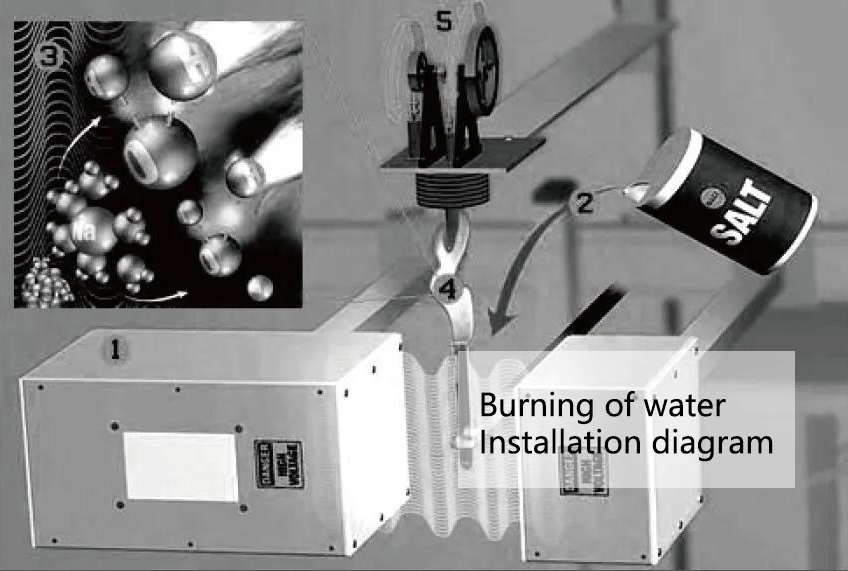
Can water burn? The answer is: yes. What’s more interesting is that the cause of this miracle was actually cancer.
John Katz is a British inventor, he is fascinated by radio. He was diagnosed with leukemia, and his condition is getting worse. His deep fascination with radio inspired him. He knows that radio station antennas can heat the metal glasses of people standing nearby. If nanoporous metal particles are implanted into individual cancer cells, will they also kill cancer cells and protect healthy tissues?
After years of persistent efforts, John Katz achieved a seemingly impossible feat-to create a device that uses radio waves to treat cancer. This device is very helpful in curing his leukemia. Now, researchers at a cancer center have used his technology to treat cancers in animals and have made some progress.

Surprisingly, his device also unexpectedly achieved another success: it set the salt water on fire. Like many major scientific discoveries, this phenomenon happened very accidentally: an assistant let a test tube filled with salt water receive 14 MHz radio wave radiation and ignite it at the mouth of the tube. As a result, a sparkle appeared-the water was burned, produced a flame like propane liquid burning.
At first, people thought it was just a ridiculous trick like magic. However, after a deep analysis, a materials scientist discovered that there were scientific principles in it. He believes that sodium chloride in salt water can weaken the super strong connection between oxygen atoms and hydrogen atoms, and radio waves further break this connection and release combustible hydrogen molecules. At this time, when a match is ignited, the hydrogen molecules will burn. This shows that it is not the water itself that burns. Tests have shown that once the radio waves stop, the burning phenomenon disappears.

Some people believe that this invention has great potential for the development of clean energy in the future. The salty seawater fills most of the earth’s surface. Today, when the world energy crisis is getting worse, we can use this invention to generate energy. Endless clean energy.
At the same time, the voice of suspicion continued to sound. Some people believe that the energy absorbed by this method to make fuel will far exceed the energy it can release. In addition, some people have raised objections to this phenomenon: hydrogen is the lightest gas known so far. If they are released, they should quickly escape into the air instead of staying on the top of the container for a long time. Even if the hydrogen is not dissipated, only using such an unfocused low-energy device, and the continuous supply of energy is so short, how can there be enough hydrogen to be released and maintain the flame? Industrial-grade hydrogen electrolysis did not quickly replace gasoline. The main reason is that it is quite difficult to manufacture.
In addition, when hydrogen meets oxygen in the air, it should be a burst rather than slow combustion. However, on this point, someone explained that because the amount of hydrogen produced is relatively small and there is no large-scale flow in the air, there is no explosion.
Who is correct? Will this “water burning” experiment eventually become an energy myth or just add a trick to the carnival? With the further development of such experiments, these problems may be revealed in the near future.
Comments